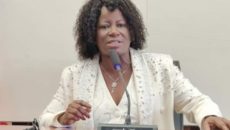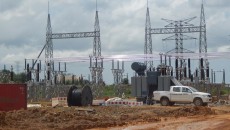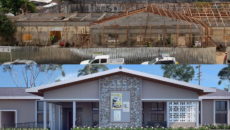Over the past two years, Liberia has demonstrated its tremendous ability to overcome adversity. Thanks to the strength of its institutions, the determination of its leadership, and the resiliency of its people, the nation emerged from the tragedy of Ebola and is on its way to recovery.
The United States is proud of its partnership with the people of Liberia in the fight against Ebola, and the U.S. will continue to support the nation’s recovery through economic growth, job creation, and poverty reduction. As President Barack Obama said last year when meeting with President Ellen Johnson Sirleaf, working in partnership with each other, “we want to accelerate as much as possible a return to Liberian growth and development.â€
That is why First Lady Michelle Obama was recently in Liberia to highlight our work together to promote girls education. And that is why, as head of the U.S. government’s Millennium Challenge Corporation, I am delighted to visit Liberia to meet with public- and private-sector partners who are supporting MCC’s US$256.7 million Liberia Compact.
MCC is a unique U.S. agency committed to reducing poverty through economic growth, and our compact with Liberia, signed last year, aims to tackle two major obstacles to widely shared economic growth: reliable electricity and transportation. By investing in this critical infrastructure, MCC’s investment will help build a foundation for sustainable development in Liberia at a critical time in the nation’s history.
Connecting homes and businesses to reliable electricity is a priority for the Liberian government and is one of the surest ways to drive sustained economic growth. MCC’s commitment, along with support from the government and other development partners, will restore the Mt. Coffee hydropower dam to bring the country’s largest source of power back online.
Increasing the availability and affordability of electricity means more students can study at night, hospitals can treat patients with better equipment, and businesses can grow and thrive. Recognizing the electricity needs across the continent, the U.S. government launched Power Africa in 2013 to increase access across sub-Saharan Africa, and MCC is making the largest Power Africa investment in Liberia to date.
The MCC compact also aims to improve the condition of Liberia’s roads and reduce the cost of transportation so businesses can effectively bring goods to market and families can travel safely around the country. With the withdrawal of United Nations Mission in Liberia forces, MCC’s investment in Liberia’s roads will support the Ministry of Public Works and its partners as they take on the task of maintaining the country’s complete road network.
In less than a year, together with the Millennium Challenge Account-Liberia and other compact partners, we have made great progress. During my trip, I’ll be visiting the Mt. Coffee hydropower dam. And a rehabilitated road leading to the facility has already reduced travel time and increased business in the area.
This project is a great example of what we can achieve through partnerships – partnership with not only the Government of Liberia but also with fellow development partners. MCC is pleased to be working alongside U.S. organizations such as USAID and international partners such as Germany’s KfW, the European Investment Bank, and the Government of Norway, to unlock Liberia’s economic potential.
Together, we are sending a clear message that Liberia is open for business. The United States and its partners stand shoulder-to-shoulder with Liberia to advance infrastructure development and support a growing and thriving economy that helps lift people out of poverty.
Featured photo by Jefferson Krua



